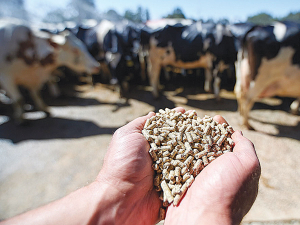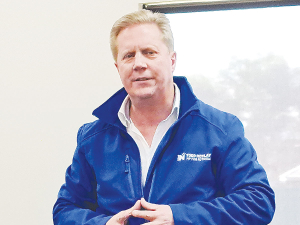In the ever-evolving landscape of dairy farming, the quest for optimal nutrition is paramount.
For New Zealand dairy farmers, the choice of feed can significantly impact the health and productivity of their herds.
Among the various options available, pelletised dairy rations stand out as a superior choice. In this article we look at why you might consider opting for pellets.
Consistence
Pelletised dairy rations offer a level of consistency that other feed types are hard-pressed to beat. Each pellet is formulated to contain a balanced mix of nutrients, which means that every cow receives exactly the same high-quality diet. This uniformity can go some distance towards helping maintain the herd health and productivity, as there are no variations in the nutrient intake that could lead to deficiencies or imbalances.
Digestibility
The process of pelletising feed involves grinding the ingredients to a fine powder before compressing them into pellets. This increases the surface area of the feed, making it easier for cows to digest and absorb the nutrients. Improved digestibility means that cows can extract more energy and nutrients from the same amount of feed, leading to better overall health and milk production.
Less waste, easier to handle
Pelletised feeds are also less prone to wastage compared with loose feeds. The compact nature of pellets means they are less likely to be blown away by the wind or trampled underfoot. This not only ensures that more of the feed is consumed by the cows, but also helps reduce the overall feed costs for farmers. Pelletised dairy rations are also easy to handle and store. They take up less space and can be stored for long periods without spoiling (provided they are kept dry). In a country with such varied terrain and climate – and the logistical challenges they bring – this convenience is of particular benefit.
Better feed conversion ratios
Studies have shown that cows fed pelletised rations tend to have better feed conversion ratios. This means they produce more milk per unit of feed consumed compared to cows on alternate feeds. Improved feed efficiency translates to higher profitability for farmers, as they can achieve greater milk yields without increasing their feed costs.
Precise & eco
Pelletised feeds can also contribute to more sustainable farming practices. The precision in formulation means that there is less likelihood of overfeeding or underfeeding, which can lead to nutrient runoff and environmental pollution. By optimising the nutrient intake of cows, farmers can reduce their environmental footprint and promote more sustainable dairy farming practices.
In conclusion, pelletised dairy rations offer numerous advantages over alternate feeds for New Zealand dairy cows. Their consistency, enhanced digestibility, reduced waste, convenience, improved feed efficiency, and environmental benefits make them a superior choice for modern dairy farming. By adopting pelletised feeds, New Zealand dairy farmers can help safeguard the health and productivity of their herds while also promoting sustainable farming practices.


















